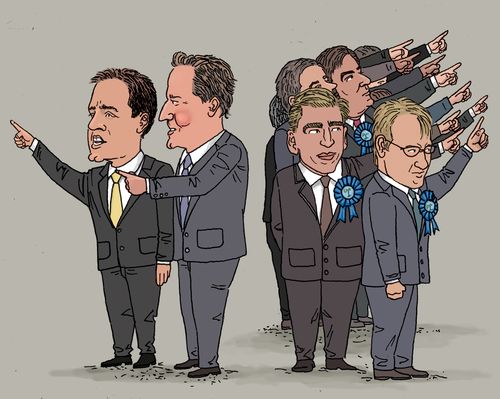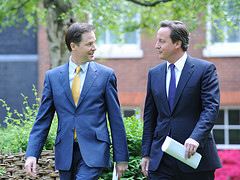
Assessing the Performance of Minority Governments in Europe: The Devil is in the Detail
In 1974, when Harold Wilson formed the UK’s first minority government in 45 years, observers like Anthony King optimistically claimed that “[m]inority rule can work”. This challenges the oft-cited view of Strøm that minority governments are “counterintuitive phenomen[a] in the world of parliamentary democracy”. Today, minority governments constitute approximately one third of governments in established parliamentary democracies, globally. This ‘counterintuitive’ statistic raises the following questions: When can minority rule work? Under which conditions are minority cabinets effective? How have minority rule governments evolved over time? To answer these questions, I focus on three cases – Sweden, Norway, and Denmark – where minority cabinets are the predominant form of government. Ultimately, I argue that existing measures to assess the performance of …

What a probable Jamaica coalition means for possible cannabis legalisation in Germany
On September 24th, Germans elected a new parliament. The CDU/CSU won 32.9%, the SPD 20.5%, the AfD 12.6%, the FDP 10.7%, the Green Party 8.9%, Die Linke 9.2%. This outcome, resulting in the presence of six parties in the Bundestag, will complicate the formation of a new governing coalition. The right-wing Alternative für Deutschland (AfD) will enter the German Bundestag for the first time, but is politically shunned by other parties. Die Linke is ideologically too far removed from the Conservatives to ever govern with them. The once proud and mighty German Social Democrats (SPD) have been humbled by the election. In consequence, the Social Democrats have announced their intention to go into opposition. Angela Merkel’s Christian Democrats (CDU/CSU), while …

What Do We Owe to Each Other? Welfare, Conditionality and the Left
Barely a week passes these days in the UK without a new story and controversy over the Coalition government’s changes and cuts to welfare. One controversial feature is what policy wonks call ‘conditionality’: making eligibility conditional on some prescribed activity (usually) related to work. Most controversial is ‘workfare’: requirements that benefit recipients work full-time while receiving benefits rather than a wage. Many have compared workfare, in this sense, to slavery.

Towards a New Politics of Production
The coalition government is nearly halfway through its term and little way towards finding a strategy for growth. For the British Labour party, several key priorities for growth are taking shape, but sharper definition is now required The Left has to identify a new politics of production and growth. The recent UK growth statistics underline the catastrophic damage and continuing aftershocks inflicted by the financial meltdown in 2008-9, exacerbated by the never-ending crisis in the eurozone. Despite it’s disastrous track-record of macro-economic management, epitomised by the Lawson boom in the late 1980s and George Osbourne’s ill-timed retrenchment since 2010, the Conservatives have consistently positioned themselves as the party of fiscal discipline and economic competence, as well as the party of …

A Shift to the Right: Conservatism Beyond Cameron’s Coalition
‘Conservatives need to recast the argument about free enterprise for a new age, or risk losing the debate to a tide of anti-market socialisation.’ Elizabeth Truss MP David Cameron’s first major Cabinet reshuffle since becoming Prime Minister in May 2010 was accused or hailed as signifying a ‘shift to the right’. The bruiser of the Tory Left Kenneth Clarke was replaced at the Ministry of Justice by Chris Grayling, a darling of the Tory Right. Matthew Hancock and Michael Fallon, two unabashed Thatcherites, have been installed as Business ministers whose primary purpose is to restrain the egalitarian and regulatory urges of Vince Cable. Other signals that the Coalition has moved to the ideological Right bear witness with …

What coalition?: Let’s be honest, a Tory-only government would not have done things that differently
On the BBC’s Sunday Politics programme this week, former Defence Secretary and darling of the Tory Right, Liam Fox, suggested that ‘it is a game for academics’ to discern as to whether a Cameron Government policy (i.e. without Liberal Democrat restraint) would be that different from a Coalition Government policy. I reckon it’s not just an ‘academic game’, but nevertheless I’ll give it a go. The central contention here is that a Tory majority Cameron Government would, mutatis mutandis, be no different to today’s Coalition Government in terms of ideology, public policy and behaviour. Some academics agree. Tim Bale and Robin Kolodny observed recently that Britain has a ‘Coalition government but one that, to all intents and purposes, looks, sounds and …









